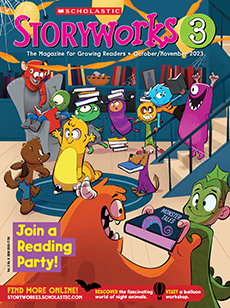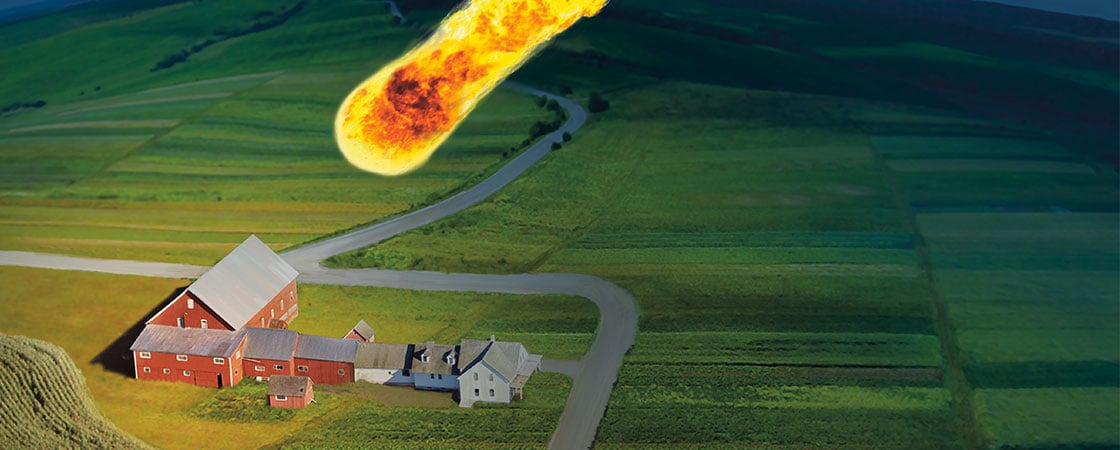We live on a farm near the town of Rock Creek. My daddy grew up on the farm. So did his daddy and his daddy’s daddy.
We’ve been here just about forever, tryin’ to make a go of it. It’s hard, though. Lots of folks have given up and moved away. They say Rock Creek will be a ghost town soon.
Daddy isn’t leaving. “All I ever wanted was this farm and a good family. I’m staying put,” he said.
The day the rock fell from outer space, I was feelin’ sorta blue. It was the Thanksgiving holiday but we couldn’t go nowhere. The truck was busted. We couldn’t fix it because Mama and Daddy were having money troubles.
I was outside when I heard it.
Boom! Then whump-whump-whump like a flat tire, but louder.
Something passed overhead. It was like a thundercloud moving a million miles an hour.
Bam! Thunk-thunk-thunk!
Then it was quiet, like the Earth and everything on it was holdin’ its breath.

